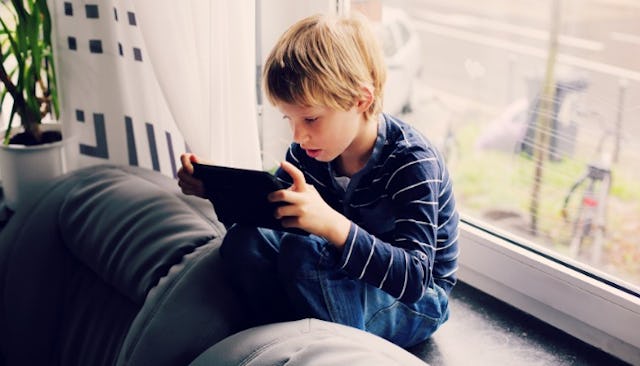5 Ways I’m Preparing My Tween For Social Media

My 9-year-old son is a self-proclaimed gamer and computer geek. He loves playing video games and spending many hours explaining them to me in detail while I pretend to listen. He’s even started to design his own video games and is taking a computer coding class in school so that he can take his nerdy interests to a new level.
Like many parents, I struggle to set good screen time limits. On the one hand, there is a lot of good, interesting brainy stuff he uses computers for, but spending too much time on screens can fry his brain and prevent him from doing other activities. So limits are set, and fights are fought. I hope I’m doing a decent enough job allowing him to explore while setting appropriate limits, but nothing about parenting can be perfect.
However, I know I’m just skimming the surface of the media concerns I’m going to have with my son. He hasn’t yet ventured into the world of social media, but I feel it coming. With the end of elementary school looming in the not-so-distant future and the entrance to middle school coming soon after, I know that at least some part of his social life will happen via social media.
Frankly, I’m a bit terrified. I know that all kinds of upsetting (and tragic) things have happened as a result of young people using social media. While I can’t prepare him for every possible scenario he might encounter as he gets older, here are some things I’m doing now in the hopes that he (and I) will be better prepared for what lies ahead:
1. Requiring his media use to take place in the family room
I know that eventually much of his media use will take place behind closed doors, but for now, all of his gaming and computing happens out in the open. Our family room is near enough to the kitchen and living room (where this mom seems to live), so I can pretty much hear everything that goes on while he’s online. Most of what he does online or while gaming is pretty innocuous, but some of the YouTube videos he has watched have contained language or scenarios I consider inappropriate. Having him nearby means we can discuss these thing as they come up. I don’t do so in a punishing tone—it’s more of an open, exploratory conversation. So far, this has worked out well.
2. Participating in his computing
I am not a gamer at all, but I’ll go along with it when my son wants to try a level of Mario or take a tour of his Minecraft village (or whatever on earth they’re called). Again, it’s all about openness right now. I want him to know that I care about what he does online and that it isn’t something to hide. It also allows me to learn about the social media elements that are available in some of the games. Some have chat rooms, and I’ve discussed what is and isn’t appropriate for him to share (“good game!” is fine, mean language is not, and sharing personal information about himself is a big NO).
3. Showing him how I use social media
I’m a Facebook addict and a writer for online sites. I share my social media life with my son as much as possible. I tell him how I feel when I share something positive online and connect with my friends. I tell him how awful it feels when one of my articles is trolled. I tell him that my top rule is that if you wouldn’t say it to someone in real life, don’t say it online. He calls me on it if I’m using my phone excessively. We talk about how much more important real life is than online life.
4. Giving him small, monitored tastes of social media
Even at this young age, I allow my son to have a very limited online life. He has an email account, which he is only allowed to use to email family members. He also can text from his iPad. Again, both of these things are done only within our family (and I have the password to his email account!). This gives us opportunities to discuss online etiquette and communication with him in a very concrete way.
5. Making sure to have a dedicated time each day to talk, one-on-one
Here’s the most important one; it has little to do directly with social media use, but will impact how we communicate about it in the long-run. As busy as our lives sometimes are, I make sure to have quality one-on-one time with my son every day. For us, it’s usually right before he goes to sleep. These minutes while he lies in the dark unwinding are when his deepest thoughts and biggest fears come to the surface. He opens up to me more in those minutes than at any other time of day. I think—and hope—that having this element of openness in our relationship will mean that when social media (and social life in general) becomes more complicated for my son, he will be able to confide in me and be honest about what is going on.
I’m sure that the teenage years will be fraught with trouble that I can’t possibly predict right now. And I know that social media use is just one worry I will have for my son. But I hope that creating an atmosphere of openness, educated exploration, and trust will go a long way in making the unknown waters of my son’s online life easier to navigate.
This article was originally published on